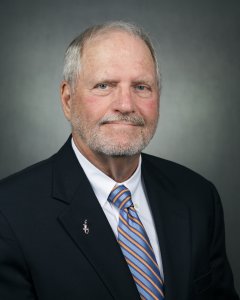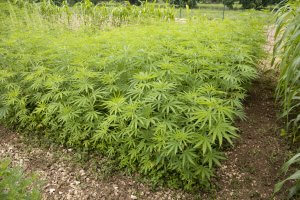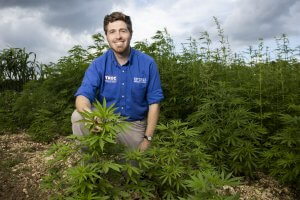December 2023 FloridAgriculture eNewsletter
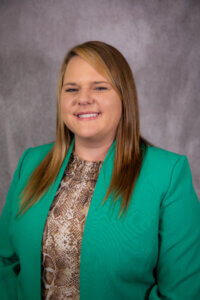
Growing up, Erin Jones was surrounded by agriculture on her family’s cattle, hay and peanut farm in Bell. Her family has approximately 60 commercial beef cows and a Simmental Angus bull. Jones was actively involved in 4-H and FFA during her youth and is involved with local chapters in her community.
“I have my own cattle and work alongside my mom and dad to maintain our herd,” said Jones. “We sell show calves to 4-H and FFA members, giving me an opportunity to work with the future of our organization to cultivate a passion for agriculture like I have.”
Jones attended Florida Gateway College for her associate degree and transferred to the University of Florida where she received a bachelor’s degree in animal sciences. She is currently working on her master’s in agronomy from UF and works for UF/IFAS Extension as the Suwannee County Livestock Agent. 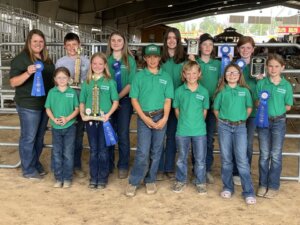
“I am proud to work with livestock and forage producers to help them continue to grow and maintain their operations,” said Jones. “I am extremely blessed to be able to coach the 4-H Livestock Judging Team and give youth members the opportunity to build a network of agriculturists and spark passion for the industry in each member.”
Although her parents have been Farm Bureau members for decades, Jones began her own journey with the organization when she started school at UF. She was a founding member of the Levy/Gilchrist County Young Farmers & Ranchers (YF&R). Jones has served as the chair of the Gilchrist County YF&R committee since 2017 and attained a position on the Gilchrist County Farm Bureau board in 2018. Jones’ position as the Suwannee County Livestock Agent allows her to be involved in both Gilchrist and Suwannee County Farm Bureaus. 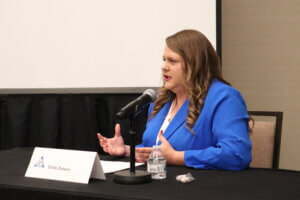
Jones is a proud advocate for agriculture in her county and loves educating others about the benefits of being a Farm Bureau member. She enjoys participating in numerous outreach opportunities throughout the year, but particularly enjoys the Christmas parade in Bell every December and the Quilt Festival held in Trenton in March.
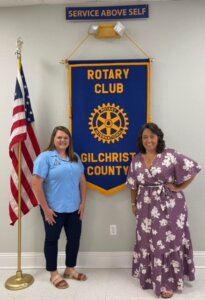 Jones believes in the future of the young people in her community and is continuously looking for ways to engage them in agriculture. In addition to her involvement with the younger generation, Jones is always looking for ways to push herself professionally. She participated in the Young Farmers & Ranchers Discussion Meet at the organization’s annual meeting and will be representing Florida at the 2024 American Farm Bureau Convention in Salt Lake City, Utah in January.
Jones believes in the future of the young people in her community and is continuously looking for ways to engage them in agriculture. In addition to her involvement with the younger generation, Jones is always looking for ways to push herself professionally. She participated in the Young Farmers & Ranchers Discussion Meet at the organization’s annual meeting and will be representing Florida at the 2024 American Farm Bureau Convention in Salt Lake City, Utah in January.
“I could not be where I am today without my Farm Bureau family, and I am so excited to make them proud and represent them to the best of my ability,” said Jones.
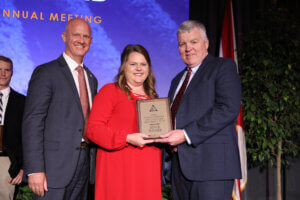
Throughout her involvement, Jones continues to be a strong advocate for Florida agriculture. She is excited to grow her knowledge and leadership skills through the many opportunities the Young Farmers & Ranchers state Leadership Team will present to her.
“I think for me, being tied to ag drives my passion to continue to advocate for the industry that has molded me into the person I am today,” said Jones.

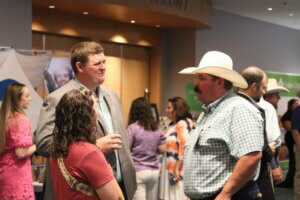 Throughout the conference, participants engaged in a series of breakout sessions and farm tours. The session topics ranged from integrating AI in pest management, estate planning, the importance of personal branding, a legislative update on the 2023 farm bill and more. The conference featured keynote speakers Cody and Erika Archie, owners of Bar 7 Ranch in Gatesville, Texas. The couple spoke on the importance of being the voice of agriculture and meeting people where they are to share the story of agriculture.
Throughout the conference, participants engaged in a series of breakout sessions and farm tours. The session topics ranged from integrating AI in pest management, estate planning, the importance of personal branding, a legislative update on the 2023 farm bill and more. The conference featured keynote speakers Cody and Erika Archie, owners of Bar 7 Ranch in Gatesville, Texas. The couple spoke on the importance of being the voice of agriculture and meeting people where they are to share the story of agriculture.